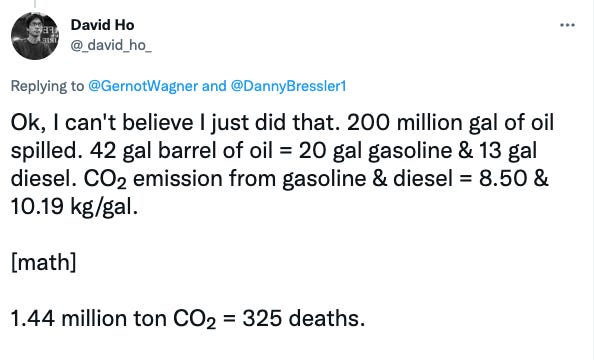Getting upstream to solve our most pressing problems
Small Steps Vol. 49: How healthcare could enter the Web3 chat 👩🏾⚕️ ; collaboration and big goals 🤝; and unicorn hunting for climate 🦄 .
When you spend years responding to problems, you can sometimes overlook the fact that you could be preventing them.
— Dan Heath, Author
Kick start
🤔 How long can we keep addressing symptoms of our biggest problems without addressing the root cause? Our Associate, Charlie, wrote this short piece on upstream thinking theory and how it can be applied to finding businesses opportunities with revolutionary impact.
🧀 For instance, Change Foods — a company pioneering a cheese alternative and recent inductee to the Giant Leap community — is going upstream in the food production value chain to find a leverage point that uses 5x less energy and 10x less water to produce the same amount of protein.
🧑🎓 Meanwhile, HEX — an edtech platform providing alternative pathways for high school leavers and university drop-outs — is directly empowering students with meaningful careers, but also contributing to to their long-term health upstream.
What we’re thinking about
👩🏾⚕️ Health goes crypto. Most healthcare organisations haven't even cracked Web1, so how are they going to react to Web3? What The Health author, Emily Casey, broke down some of the opportunity areas for healthtech, including using blockchain to record research ownership producing new health breakthroughs or incentivising better health behaviours with token-based rewards. Check it out here (or see part 1 for her great Web3 primer).
🤝 Fab collabs. While competition is (mostly) good for consumers, we will need more collaboration between big organisations to solve the world’s biggest problems. Sarah Pearson, Investment Committee member at Main Sequence, gave some great advice for both government and industry. She commented that the most effective collaborations happen when players agree on their BHAG, their “big hairy audacious goal” that benefits them all. We’re hoping to see more organisations reaching across competitive boundaries, like the 550+ organisations who signed the ANZPAC plastics pact to get rid of single use plastics by 2025.
New paths
🤗 Like Family is on the lookout for a Data Analyst.
📱 Coviu is seeking a Full Stack Software Engineer.
🧻 Who Gives A Crap is on the hunt for a Email Marketing Manager
🧒🏽 Save The Children Australia is looking for an Impact Investment Manager
🔥 Check out our Giant Leap Fund jobs board for over 100+ available positions. There’s even more jobs at ethical companies on the global B-Work job board.
Giant leaps
🪴 Congratulations to the team at Change Foods, who closed a bumper $21.5m seed round for their groundbreaking cheese alternative that looks and tastes like cheese without the cows.
🏫 Also a huge well done to Jeanette Cheah and the team at HEX for closing their $1.25 million round and announcing the expansion of their innovation gap year program to other countries.
For the road
🦄 There are now 46 climate focussed unicorns, and the sector is growing at pace. 60% of these unicorns were crowned in just the last year, and they’re reaching unicorn status faster than the average 7 years, with 40% achieving it in under four years.
💰 The fast-growing sector is being fuelled by a torrent of capital, with three quarters of a trillion dollars invested in 2021 trending heavily towards the energy and transport space. Meanwhile, new (and rebranded) players have entered the chat, like Virescent Ventures raising $200m to back climate tech in Australia, and $44m pledged from the Chan Zuckerberg Initiative.
🌳 It’s no wonder that some of the most ambitious founders are flocking to the space, with 25 of the current Y Combinator batch having a climate focus.
🛢 A sobering tweet from Climate Scientist David Ho: The oil spill from Deepwater Horizon (one of the worst in recent history) would have done more damage for the environment and humanity if it was captured, sold and used.
🖥 Into Web3 and tired of feeling outnumbered by the crypto bros? Here’s some useful groups and resources that have sprung up to support women and non-binary people in the ecosystem:
🧰 Mack’s Resources is an impressive list of resources of startups in Australia.
🍷 On This Week In Startups, The Production Board’s David Friedberg unveiled Cana, a technology that can molecularly print wine, amongst other beverages. It’s the latest step in the Production Board’s vision to reimagine food production and reduce energy usage in the supply chain.
🎥 Transitions Film Festival is back, sharing documentaries and revolutionary ideas on climate change and social justice. Use code FRIENDFROMTHEFUTURE for 20% off any ticket.
🎨 Meet two artists, Nicole Kelner and Sarah Lazarovic, using art on social media to spread the word about Climate Change.
🐈 And finally, Cat Winslet takes to the silver screen…



